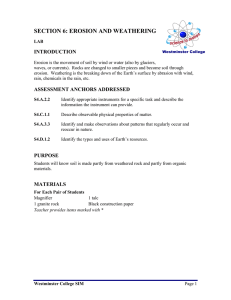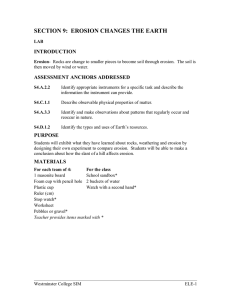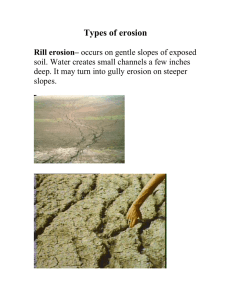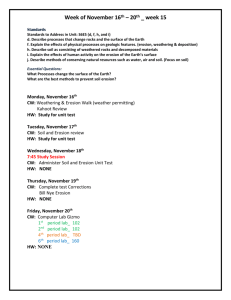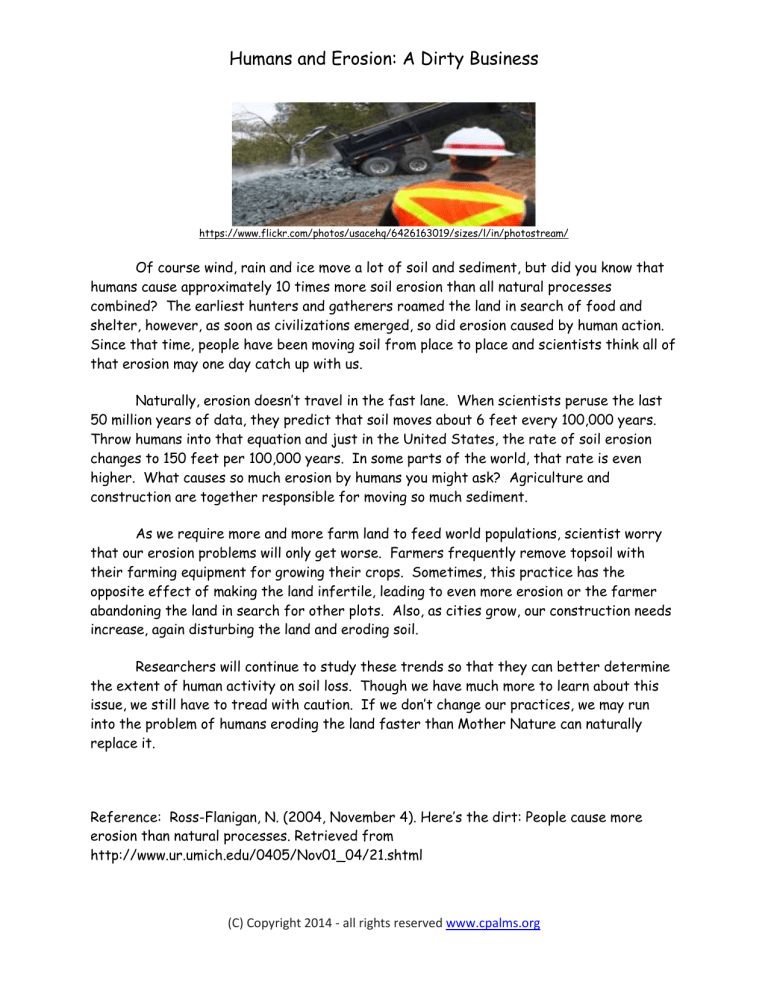
Humans and Erosion: A Dirty Business
https://www.flickr.com/photos/usacehq/6426163019/sizes/l/in/photostream/
Of course wind, rain and ice move a lot of soil and sediment, but did you know that
humans cause approximately 10 times more soil erosion than all natural processes
combined? The earliest hunters and gatherers roamed the land in search of food and
shelter, however, as soon as civilizations emerged, so did erosion caused by human action.
Since that time, people have been moving soil from place to place and scientists think all of
that erosion may one day catch up with us.
Naturally, erosion doesn’t travel in the fast lane. When scientists peruse the last
50 million years of data, they predict that soil moves about 6 feet every 100,000 years.
Throw humans into that equation and just in the United States, the rate of soil erosion
changes to 150 feet per 100,000 years. In some parts of the world, that rate is even
higher. What causes so much erosion by humans you might ask? Agriculture and
construction are together responsible for moving so much sediment.
As we require more and more farm land to feed world populations, scientist worry
that our erosion problems will only get worse. Farmers frequently remove topsoil with
their farming equipment for growing their crops. Sometimes, this practice has the
opposite effect of making the land infertile, leading to even more erosion or the farmer
abandoning the land in search for other plots. Also, as cities grow, our construction needs
increase, again disturbing the land and eroding soil.
Researchers will continue to study these trends so that they can better determine
the extent of human activity on soil loss. Though we have much more to learn about this
issue, we still have to tread with caution. If we don’t change our practices, we may run
into the problem of humans eroding the land faster than Mother Nature can naturally
replace it.
Reference: Ross-Flanigan, N. (2004, November 4). Here’s the dirt: People cause more
erosion than natural processes. Retrieved from
http://www.ur.umich.edu/0405/Nov01_04/21.shtml
(C) Copyright 2014 - all rights reserved www.cpalms.org

